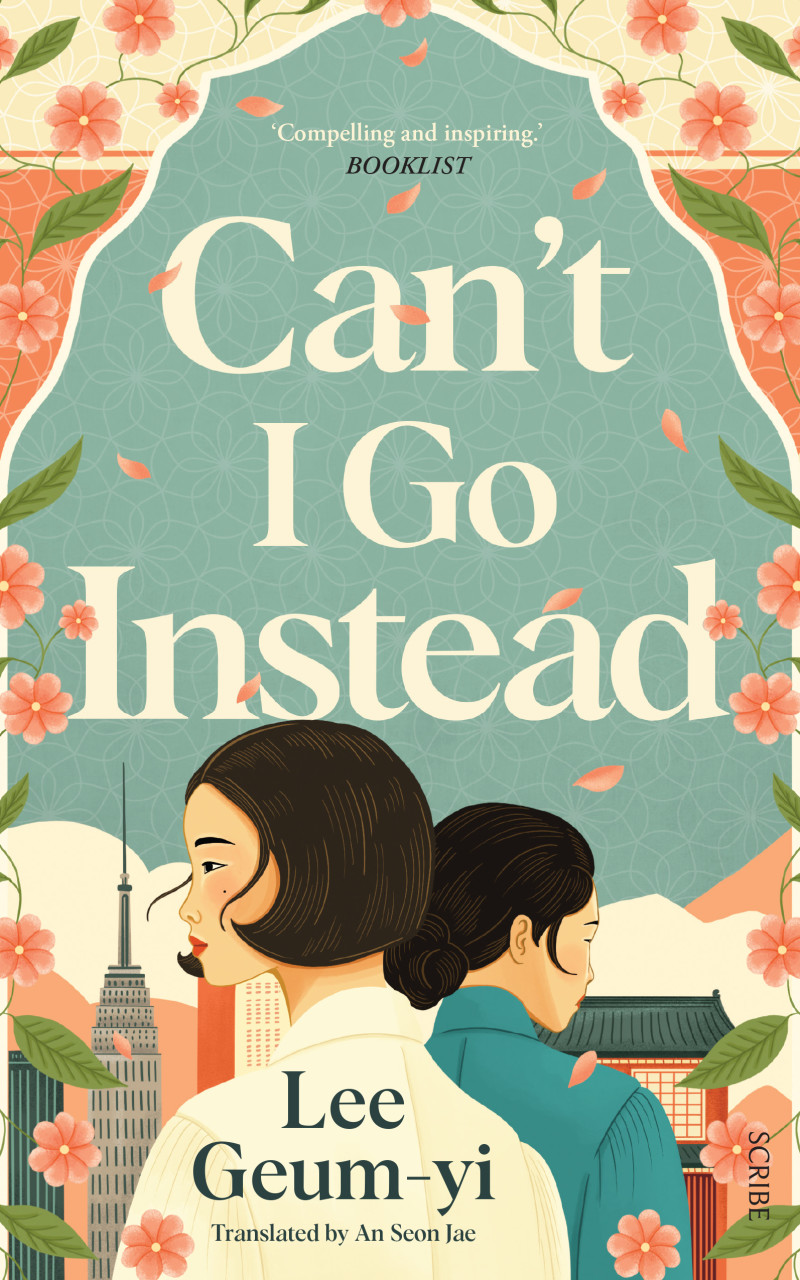Another fascinating book by Lee Geum-yi, who wrote "The Picture Bride" which I reviewed here last year. Korea is a country which seems rather mysterious and unknown to me, and I relish the opportunity to learn more.
Description:-
Two women's lives and identities are intertwined - through World War II and the Korean War - revealing the harsh realities of class division.
Can't I Go Instead follows the lives of the daughter of a Korean nobleman and her maidservant in the early 20th Century. When the daughter's suitor is arrested as a Korean Independence activist, and she is implicated during the investigation, she is quickly forced into marriage with one of her father's Japanese employees and shipped off to be a comfort woman to the Japanese Imperial army.
Years of hardship, survival and even happiness follow. In the aftermath of WWII, the women make their way home, where they must reckon with the tangled lives they've led, in an attempt to reclaim their identities, and find their place in an independent Korea.
My reaction:-
At the beginning of this novel, Korea is controlled by Japan. A Korean viscount has a splendid home in Seoul, a son by a concubine and his wife is due to give birth after a series of miscarriages. She bears him a healthy daughter, Yun Chaeryeong. For her eighth birthday, her doting father buys her a companion/servant from the settlement associated with one of his farms, and this girl, Sunam (effectively a slave), has her life changed forever. It seems extraordinary that a person could buy another and belong to an eight year old girl, but this collision of lives goes on to have many repercussions. Sunam is an intelligent and resourceful child who is able to make use of the new world she finds herself living in, and it is interesting to see how this develops. Chaeryong, meanwhile, enjoys a privileged life and education while her mother becomes increasingly embittered and distant.
I will not spoil the plot of the story, but both girl's destinies are thrown into the air by war and discord. Chaeryeong loses her first love and is married off and sent to the USA, while Sunam has to adopt Chaeryeong's identity and take her punishment for associating with a Korean Independence campaigner as a support worker for the Japanese Army - in a military brothel. This broke many women, but what of Sunam? The story tells us of how both these girls fare throughout their lives, and also how little right to self-determination women of any social status had at this time. Subjugation to men and class affects both of them.
Although terrible things happen in this tale, as they did in reality, I enjoyed reading this well-written and -translated story and learning more about Korea's place in history and the world. There is plenty of food for thought within the pages. I really appreciate the opportunity to read and share my thoughts on Can't I Go Instead.




No comments:
Post a Comment